WELLINGTON, Arthur Wellesley, 1st Duke of (1769-1852). A collection of 3 autograph letters signed, 5 letters signed (3 in the hand of Lord Fitzroy Somerset) and 3 documents signed, comprising letters to Major General MacKenzie, Ruivaes, 19 May 1809, to General McKinley, Oporto, 23 May 1809, to Admiral George Berkeley (five) and to Major General George Cooke Freneda, 12 December 1811 and three documents signed ('Wellington'), Head Quarters (France), warrants for the payment of the army under his command, 12 March, 11 and 12 June 1814, printed with manuscript insertions, altogether approximatley 10 pages, 8 vo in autograph, and 23 pages, various sizes , in other hands. Letters from the Peninsular Wars, the first four written as Wellington chased Marshal Soult from the Douro, expelling the French from Northern Portugal. The forcing of the Douro and recapture of Oporto, within weeks of his arrival in the Peninsular, was one of Wellington's greatest successes. 'I followed him as long as there was any Corps that I thought was likely to stop or impede his march ... We beat his rearguard on the 16th at Salamonde & should have cut if off if we had had an hour's more daylight. Our loss in this affair was trifling' (19.5.1809); 'every means that was practicable was applied to cut off the Enemy's retreat into Gallicia, but it was impossible' (23.5.1809). The letters to Admiral Berkeley report French vessels at Oporto, and refer to the transports required for 2,000 sick and wounded and prisoners ('I think they should have two tons per man as many of them are severely wounded'); later transports are needed to transfer infantry and horses and for the purchase of cattle and pork. The long letter to Cooke (commander at Cadiz) discusses the military situation early in the Second Peninsular War, criticising Ballasteros (the Spanish commander in Andalucia) who 'advanced without plan or object and without force sufficient to effect anything important', and contrasting the attitude to the sick in the British army with the Spanish, 'no Care being taken of the Sick of the Spanish Army, the Officers know nothing about them'. The remainder of the letter consists of instructions for a large contingent to be sent to reinforce Carthagena. (11)
WELLINGTON, Arthur Wellesley, 1st Duke of (1769-1852). A collection of 3 autograph letters signed, 5 letters signed (3 in the hand of Lord Fitzroy Somerset) and 3 documents signed, comprising letters to Major General MacKenzie, Ruivaes, 19 May 1809, to General McKinley, Oporto, 23 May 1809, to Admiral George Berkeley (five) and to Major General George Cooke Freneda, 12 December 1811 and three documents signed ('Wellington'), Head Quarters (France), warrants for the payment of the army under his command, 12 March, 11 and 12 June 1814, printed with manuscript insertions, altogether approximatley 10 pages, 8 vo in autograph, and 23 pages, various sizes , in other hands. Letters from the Peninsular Wars, the first four written as Wellington chased Marshal Soult from the Douro, expelling the French from Northern Portugal. The forcing of the Douro and recapture of Oporto, within weeks of his arrival in the Peninsular, was one of Wellington's greatest successes. 'I followed him as long as there was any Corps that I thought was likely to stop or impede his march ... We beat his rearguard on the 16th at Salamonde & should have cut if off if we had had an hour's more daylight. Our loss in this affair was trifling' (19.5.1809); 'every means that was practicable was applied to cut off the Enemy's retreat into Gallicia, but it was impossible' (23.5.1809). The letters to Admiral Berkeley report French vessels at Oporto, and refer to the transports required for 2,000 sick and wounded and prisoners ('I think they should have two tons per man as many of them are severely wounded'); later transports are needed to transfer infantry and horses and for the purchase of cattle and pork. The long letter to Cooke (commander at Cadiz) discusses the military situation early in the Second Peninsular War, criticising Ballasteros (the Spanish commander in Andalucia) who 'advanced without plan or object and without force sufficient to effect anything important', and contrasting the attitude to the sick in the British army with the Spanish, 'no Care being taken of the Sick of the Spanish Army, the Officers know nothing about them'. The remainder of the letter consists of instructions for a large contingent to be sent to reinforce Carthagena. (11)



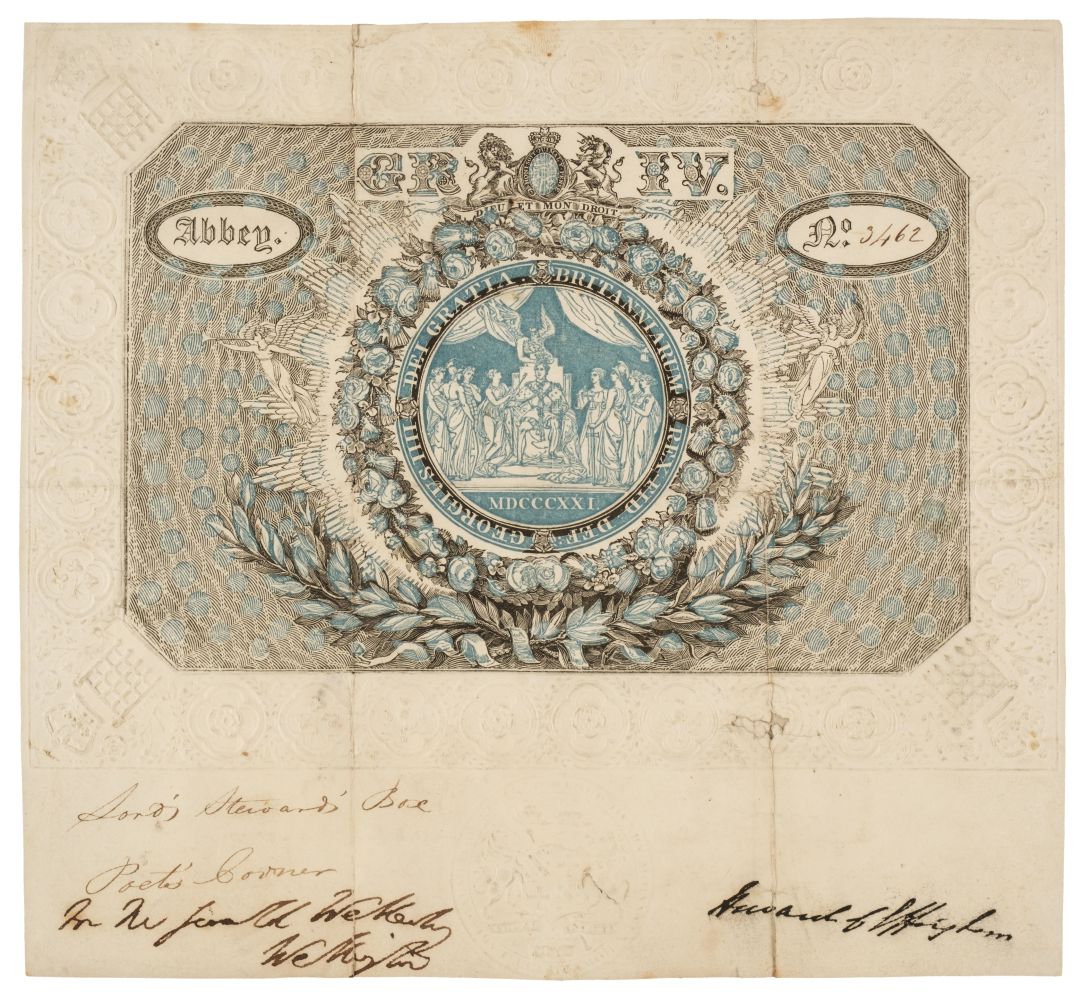




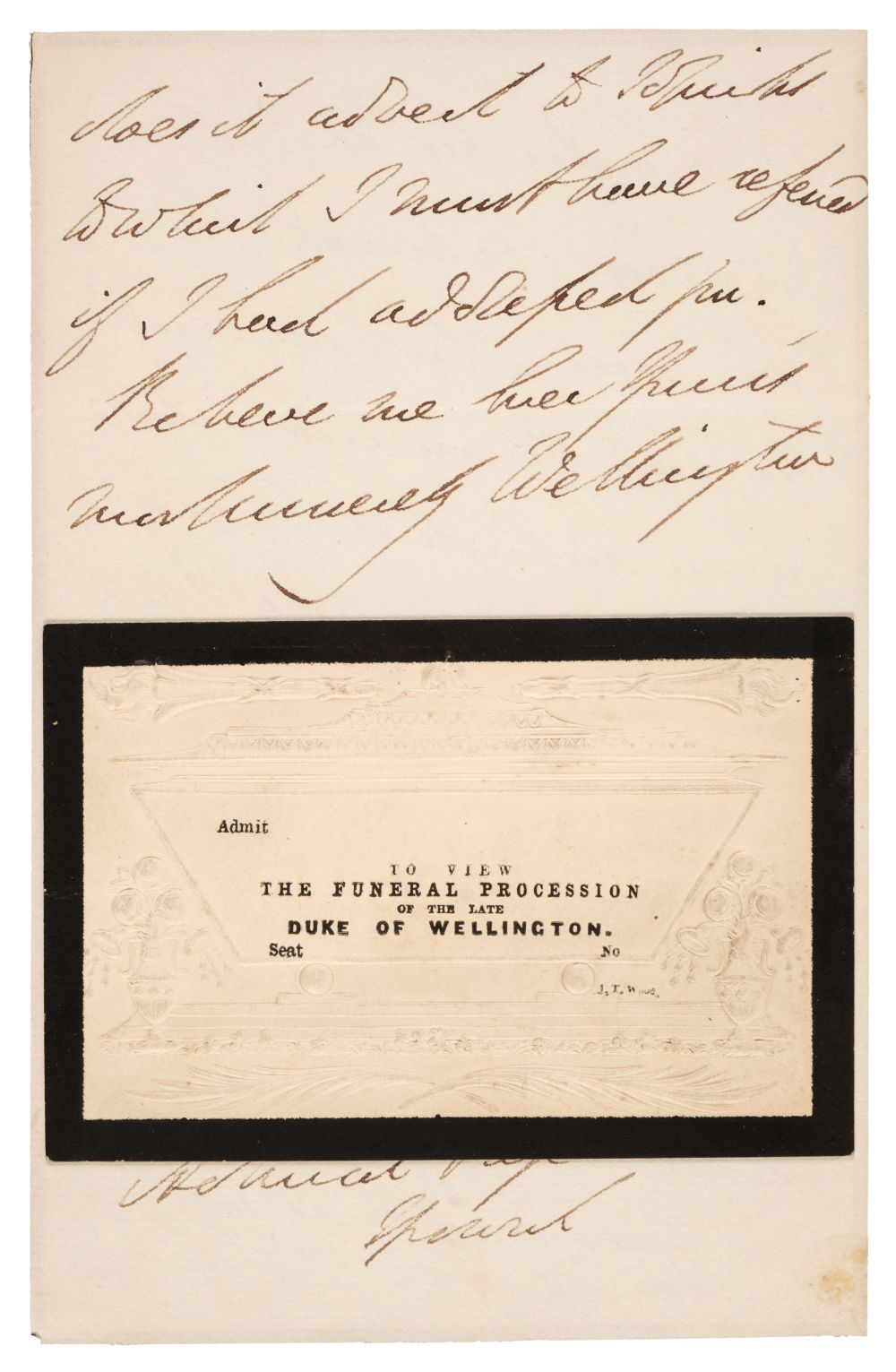
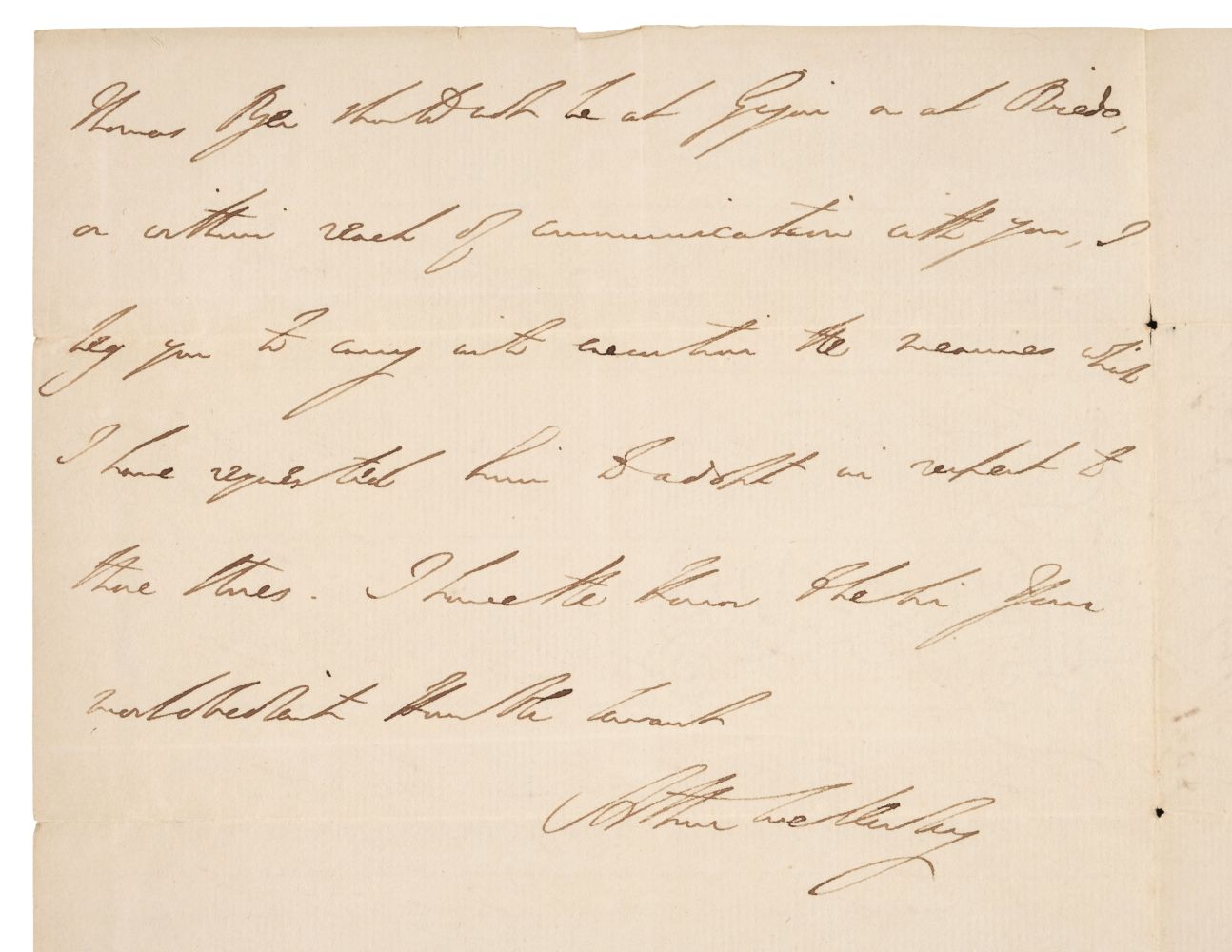
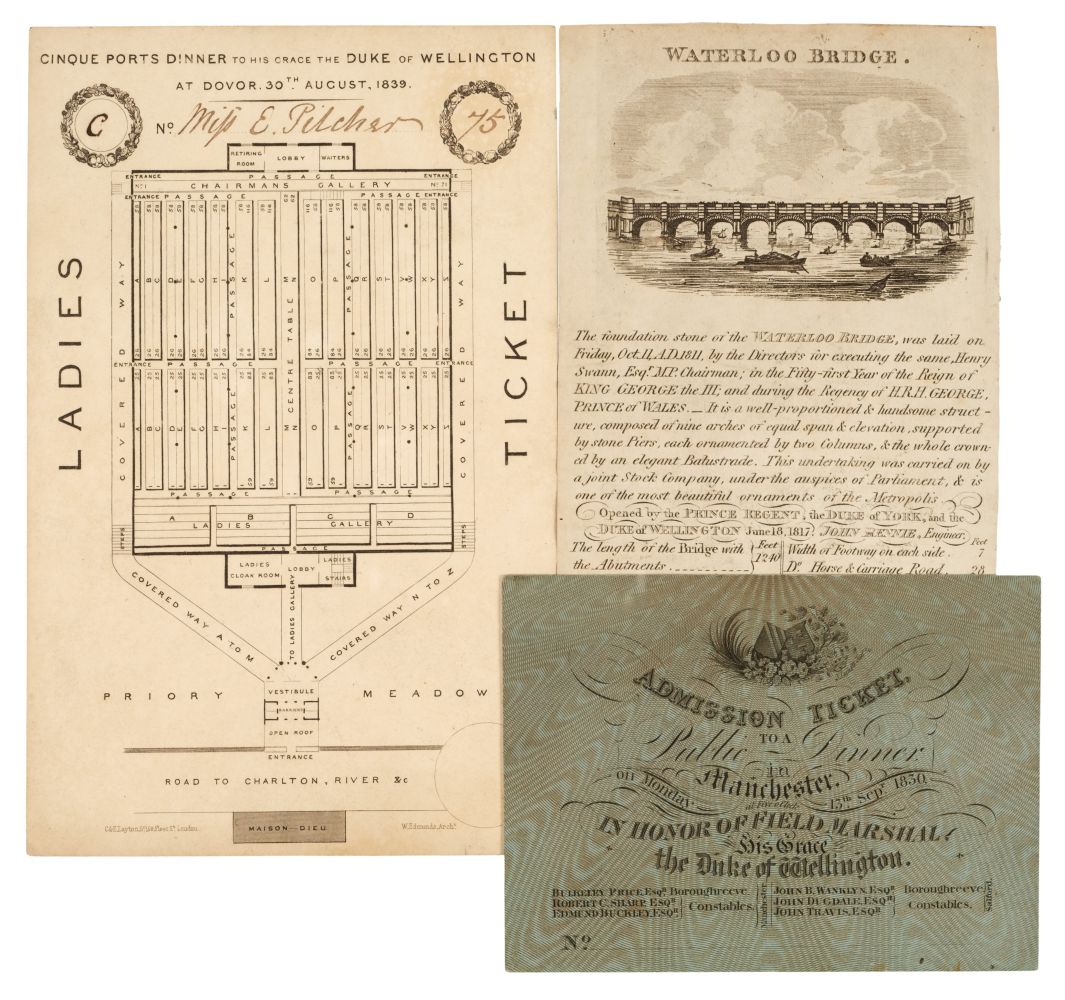
.jpg)
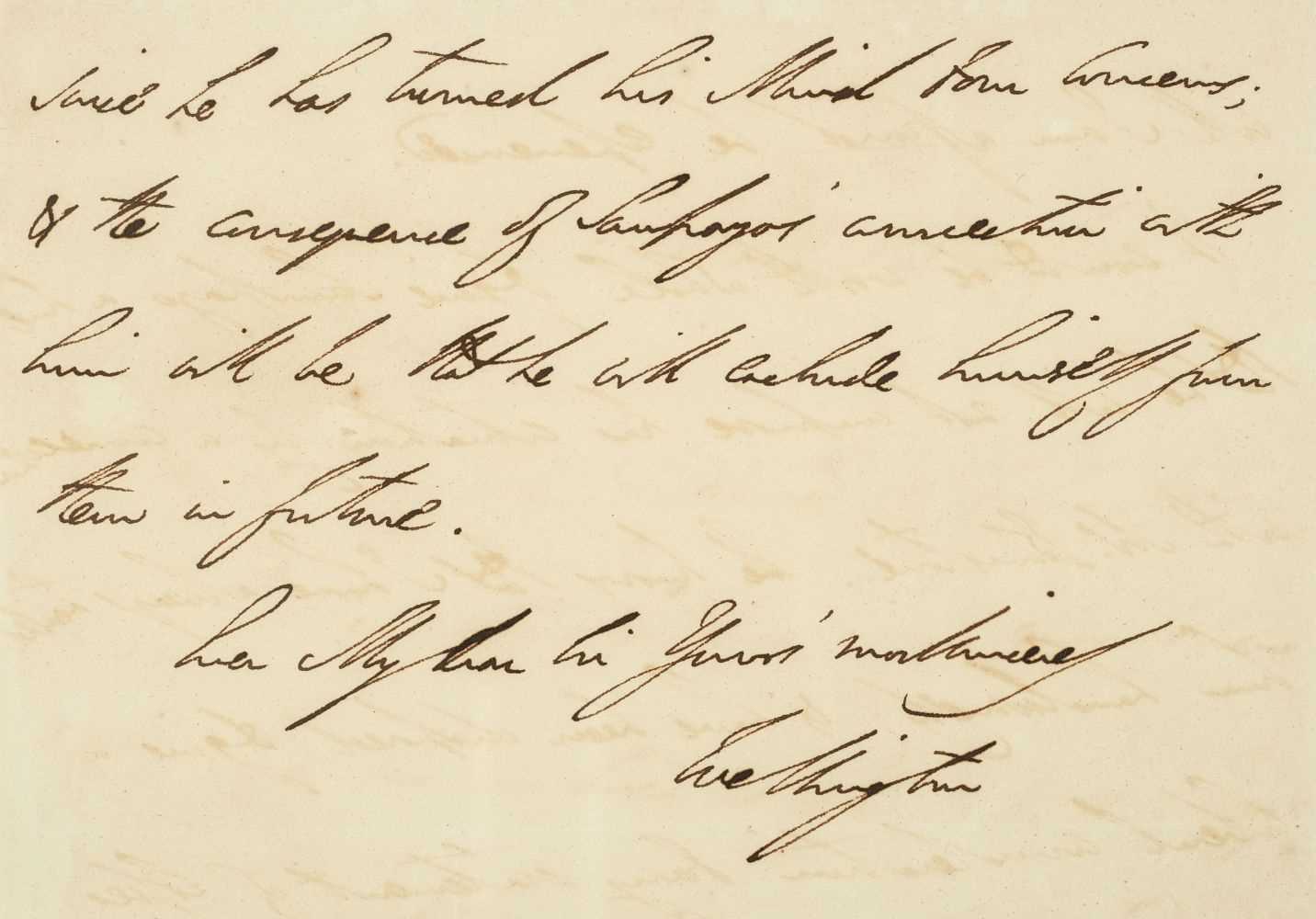
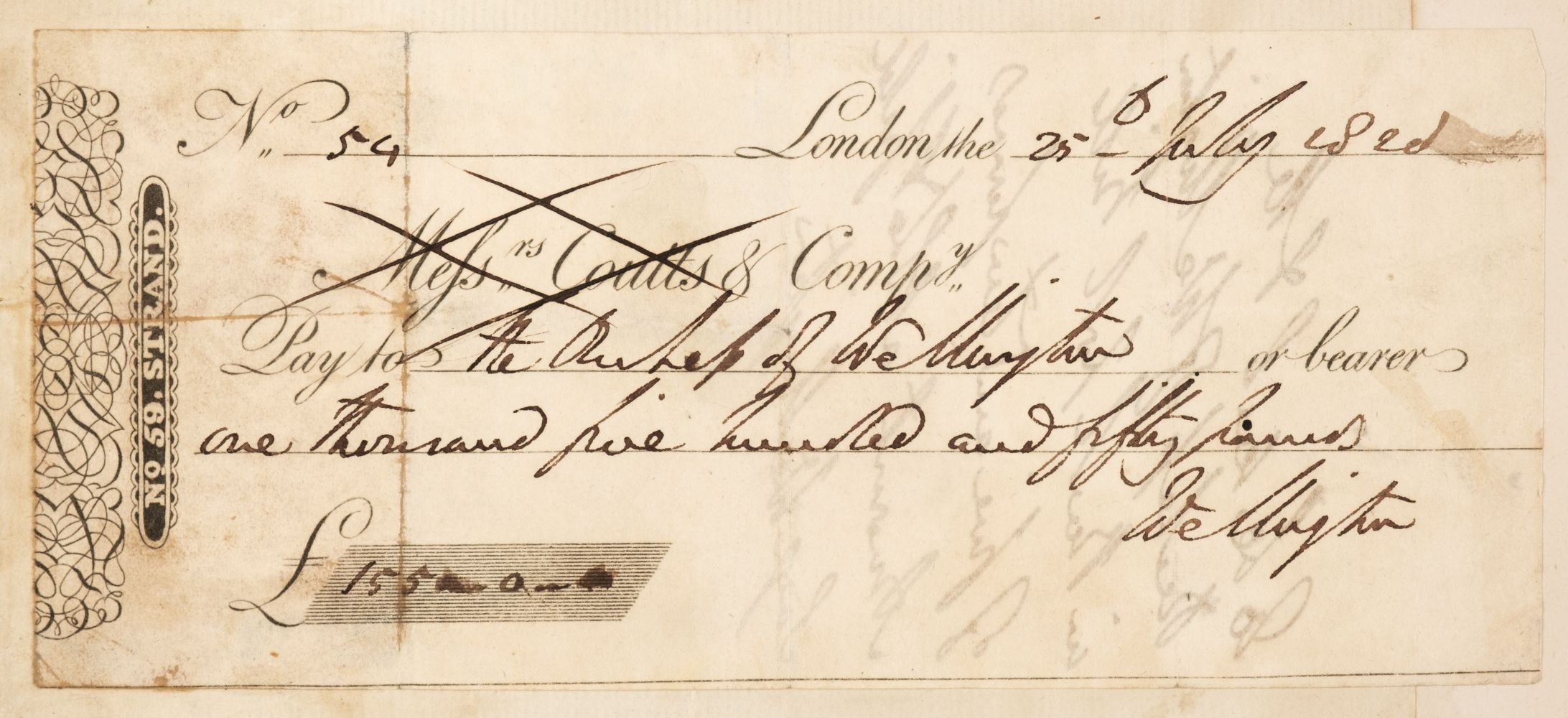
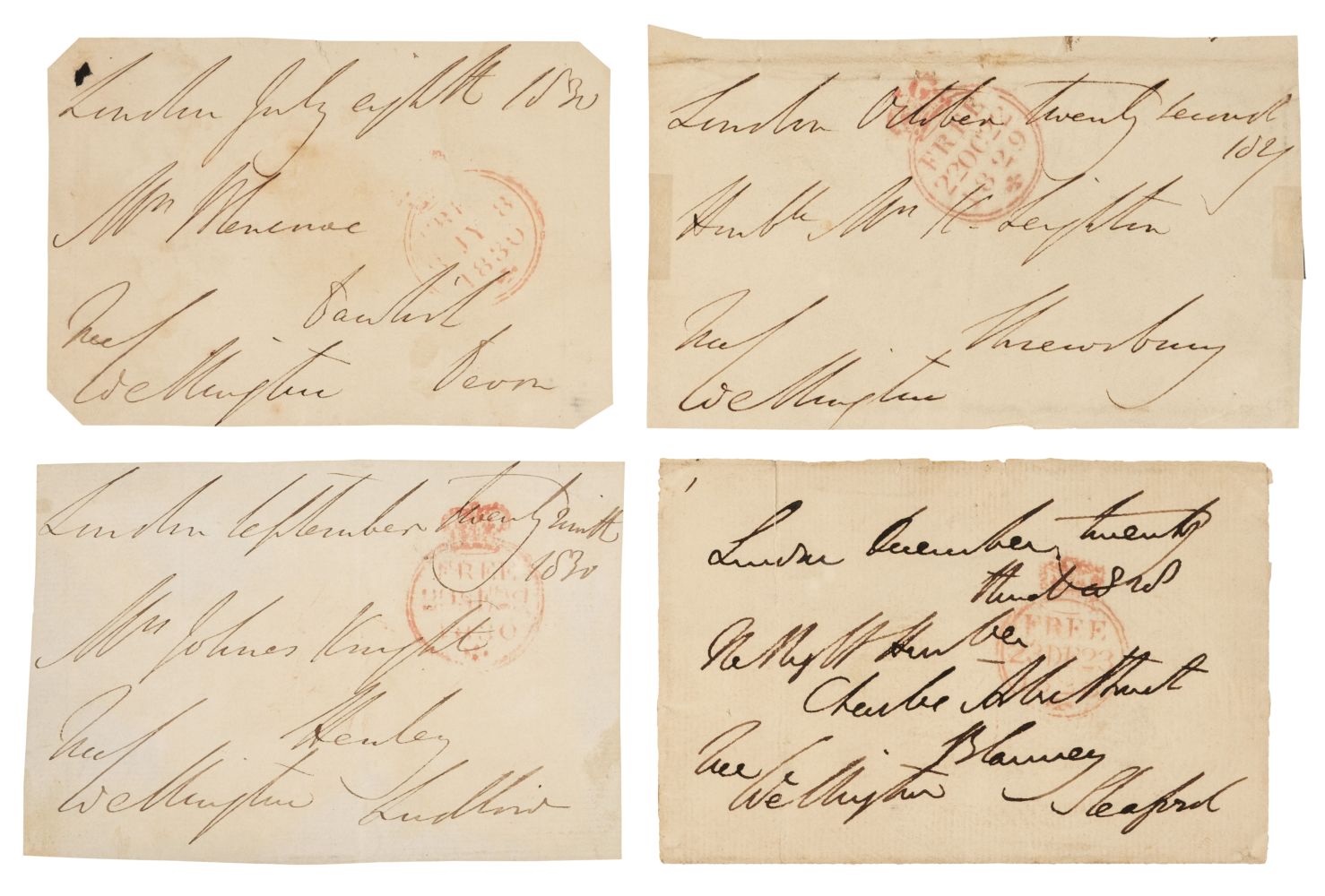
Testen Sie LotSearch und seine Premium-Features 7 Tage - ohne Kosten!
Lassen Sie sich automatisch über neue Objekte in kommenden Auktionen benachrichtigen.
Suchauftrag anlegen